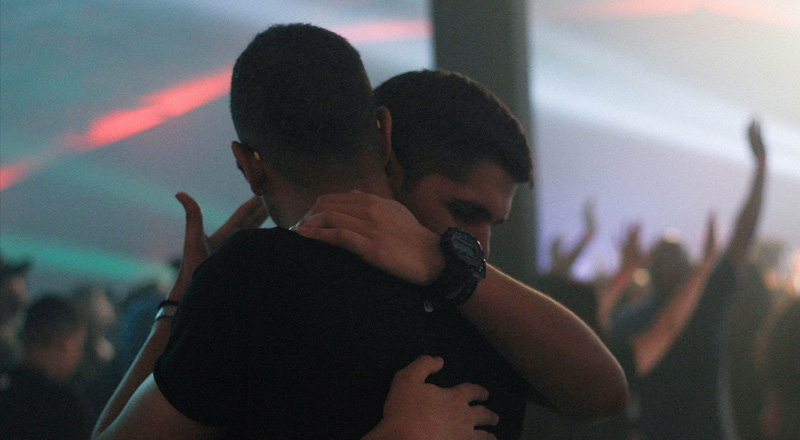The Art Of Forgetting
Tena tātou katoa e te iwi mīhana… (Greetings to all the people in mission),
This month’s whakataukī (proverb) arises from a common human failing—or is it?: “He taonga te wareware!” (Forgetfulness is a precious treasure).
At face value it’s easy to interpret this proverb rather cynically—that general forgetfulness is part of being human and should just be accepted and put up with. The strength of the word taonga (treasure), though, suggests it is something more significant—more akin to the English proverb, “to err is human, to forgive divine” (Alexander Pope).
In Collectivist cultures such as Māori and Biblical Hebrew, relationships are prioritised and relational harmony is set as the highest ideal. I believe this provides the backdrop for the whakataukī. From a relational perspective, the ability to forget is an act of great grace. If a person is able to forget offences it really is a precious thing, an asset!
As the Christian counselling industry developed we heard a lot about the power of forgiveness, with experts (e.g. Dan B. Allender) being careful to say forgiveness does not mean forgetting. Rather, they suggest, it means not holding the offence against the offender (cancel the debt), but it doesn’t mean you should be quick to trust them again (don’t lend to them again), at least until you see evidence of change. How does this meet the seventy times seven standard of Jesus (Matt 18:22 NLT)?
Let’s set outright abuse aside. That is something of a different category and there is Biblical precedent for separating from destructive relationships or excommunicating relationally destructive personalities. Healing from relational trauma takes time and I am not for a moment suggesting that should be repressed. Repression is not forgetting.
Collectivists persevere far longer with relationships because relationships are sacred ends in themselves, not means.
In a real sense we never really forget. Any incident of being sinned against can usually be recalled if you wish to and in therapeutic circumstances it is healthy to do so. No, I believe the kind of forgetting implied by the whakataukī, and Scripture, is a choice. It is a choice to continue in the relationship as if the incident never happened. It is a choice to put relational harmony ahead of personal grievance. In my experience it seems much easier for people from Collectivist backgrounds to do this than for Individualists. Collectivists persevere far longer with relationships because relationships are sacred ends in themselves, not means (whether consciously or unconsciously the sacred nature of relationships is deeply implicit).
I am more than a little bit introspective and actually enjoy doing personality tests. Recently I did one from the VIA Institute on Character and of 24 character traits forgiveness came out at #1. Don’t get me wrong, I feel the pain of offence as deeply and readily as anyone, but I seem to have the ability to shed it quicker than most for the sake of the relationship. There have been some relationships I have chosen to separate from because they were not healthy, but they are very few. I don’t believe it’s repression, I think I just have a grace to forget—a precious gift.
Usually something is precious because it is rare. This whakataukī suggests that forgetting offences is rare, but Jesus made it clear that it is core to His Kingdom ethic. As with most honour-oriented cultures, for Māori forgetting is difficult because offence is intertwined with issues of justice and honour. When honour is at stake relational harmony requires restitution and an equalising of balance in the relationship (which Māori call ‘utu’) in order for the point of this proverb to kick in. You could argue, only when repentance is evident can offences can be forgotten. That is, after all, a God-principle.
Offence <-> awareness -> repent <-> forgiveness -> forget and grow in and through the relationship. It’s a simple formula, but much easier said than done! Yet, this is the heart of mission because it is the formula of unity and it is by our unity that the world will know that the Father sent the Son (John 17:21-23). It is so unlike the way the world works. It is Holy Spirit empowered—a supernatural miracle.
Missionaries need to value forgetting as a precious grace. Offence can be taken so personally and affect us so deeply because it challenges what we value and hold as true. We perceive offence as an attack on our identity and dignity, but Jesus did not consider those things to be held on to. Instead, he gave Himself in love as a servant, prioritising the will of the Father over his own, and he grew (cf. Phil 2).
When the world sees the ebb and flow of our repenting and forgiving/forgetting/growing relationships in the contexts of culturally diverse groups, whether in mission or local church, it begs the question, “how?”; to which the answer is, “Jesus”. So, let’s keep relational harmony as our highest priority as we journey through this world, encouraging one another to #stayonmission.
Ma te Atua e manaaki ki a koutou (may you all experience the very best things from God),
Jay






